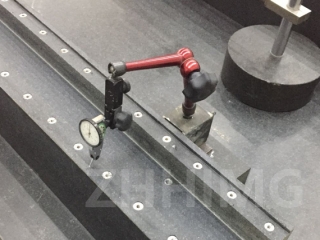When selecting a mount for sensitive equipment such as audio systems, scientific instruments, or industrial machinery, the choice of material can significantly impact performance. The most commonly used materials include granite, aluminum and steel. Each material has unique properties that affect its ability to absorb shock, which is critical to maintaining accuracy and clarity in a variety of applications.
Granite bases are known for their excellent shock absorption capabilities. The dense and hard nature of granite allows it to effectively absorb and dissipate vibrations. This feature is particularly useful in environments where external vibrations may interfere with sensitive measurements or sound quality. Granite's natural qualities help stabilize equipment, making it a preferred choice for high-end audio equipment and precision instruments.
In comparison, aluminum and steel bases, while strong and durable, are not as shock-absorbing as granite. Aluminum is lightweight and can be designed for specific uses, but it tends to transmit vibration rather than absorb it. Steel, on the other hand, is heavier and stiffer than aluminum, which helps reduce vibration to some extent. However, it still lacks the superior shock-absorbing properties of granite.
Additionally, granite generally has lower resonant frequencies than aluminum and steel, meaning it can handle a wider range of frequencies better without amplifying them. This makes granite bases particularly effective in environments where low-frequency vibrations are a concern.
In conclusion, when it comes to shock absorption, granite is the best option compared to aluminum or steel bases. Its density, stiffness and low resonant frequency make it ideal for applications requiring high precision and minimal vibration disturbance. For those looking for the best performance in their sensitive equipment, investing in a granite base is a wise decision.
Post time: Dec-11-2024

